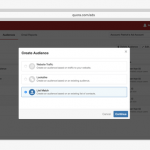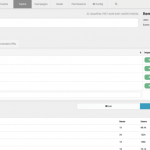New survey by people-based marketer Viant promotes marketing to identified users
Marketing to individuals across devices is gaining traction, as the appeal of third-party data and anonymous cookies fades.

What will programmatic advertising look like in a few years?
For Time Inc.-owned Viant, people-based marketing is the trend, and the company has recently released a white paper that offers some evidence in support of that vision.
The paper, “Power of the People: How People-Based Marketing Is Driving Change Across the US Advertising Industry” (registration required), promotes the kind of people-based marketing that Viant champions, based on its 1.2 billion profiles of registered users.
The paper contains survey results that, although based on a relatively small sample of 250 brand-side digital marketing execs, suggest the validity of this kind of marketing. Independent market research company Censuswide conducted the study of US brands with $50 million or more in revenue last September.
In people-based marketing, profiles of actual people who have subscribed or registered with brands — not anonymous “users” assembled from third-party data — constitute the audiences for advertising and other marketing across devices. This means that Jane Smith, who is a subscriber to a publisher in Viant’s network, receives advertising on her smartphone, laptop or tablet that is geared to her, not to someone matching her browsing or shopping behavior.
According to the Viant survey, 93 percent of the companies it surveyed are running people-based marketing campaigns on social channels like Facebook and Twitter. By itself, this isn’t too surprising, since those social networks offer persistent identification and profiles of its users.
But the survey also notes that 58 percent of respondents “run people-based campaigns across the open web.” Viant’s paper qualifies this as “only 58 percent,” but it means that nearly 60 percent of the surveyed brands run marketing campaigns targeted at actual cross-device profiles, which consist mostly of their own first-party customers, subscribers and visitors.
It also found that 90 percent of the respondents saw “improved performance” from people-based marketing, and — most interestingly — that 64 percent “believe the industry will stop relying on probabilistic data within the next 12 months to two years.” People-based marketing utilizes deterministic data, which is definite, as opposed to probabilistic data, which is tagged by various degrees of likelihood.
These findings mesh with some other sentiments being expressed by ad tech veterans. Earlier this week, for instance, Ziyaad Eydatoula, technology product manager for global marketing firm Mapp Digital, told me that he expects “a lot of companies will stop using third-party data” after the General Data Protection Regulation (GDPR) takes effect on May 25.
In other words, first-party data — a brand’s own customers, subscribers or visitors — will soon be emphasized by a major marketing firm like Mapp Digital. Viant focuses on registered user data, where users have actually subscribed or registered with the brand, as opposed to the broader category of first-party data, which can include visitors to your website who never subscribed or registered.
The other interesting data point in Viant’s survey is that 32 percent of the respondents believe “the industry will not rely on cookies within the next 12 months, followed closely by those who believe it will take over one year and up to two years (31 percent).”
Viant CMO Jon Schulz acknowledged that his company uses cookies to track its registered users who are on computers, in addition to household IP addresses and other signals. But, he noted, user activity is increasingly mobile, meaning that mobile device IDs are becoming a more frequent tracking tool.
But the main thing, he said, is the idea that brands focus on their direct relationship with customers, subscribers and visitors, instead of orienting their marketing to anonymous cookies defined by the interpreted online behavior of its users.
While Schulz said Viant is still determining how it will handle consent for advertising use cases once the GDPR goes into effect in May, he noted that brands will likely get more traction for acquiring consent from its customers and subscribers than from random, unknown users.
Marketing Land – Internet Marketing News, Strategies & Tips
(19)














